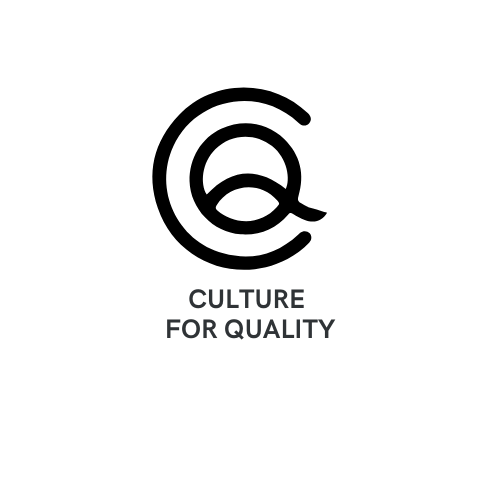When psychological safety is missing, even simple quality problems become disasters
During high school, my co-author Jenny Chu spent her summers working at a café known for amazing sandwiches—deli subs, chicken salad croissants, and pesto grilled cheeses. Each day began early, with a small crew arriving at 6 a.m. to prepare fresh ingredients, mix huge batches of salads, and stock the deli with meats and cheeses.
Their manager, though only a few years older than the crew, wielded her authority with zeal, constantly pointing out mistakes. During one particularly hectic lunch rush, they ran out of their popular chicken salad. Jenny dashed to the walk-in cooler to grab the ingredients: white meat chicken, mayonnaise, and sweet relish.
But there wasn’t any sweet relish. In its place sat several containers of hot relish.
Panicked, Jenny brought a jar to the manager. Before she could finish explaining, the manager growled, “We’re drowning here. Just make the chicken salad!”
You can guess what happened next. One sweet, white-haired regular brought her sandwich back to the counter with literal tears in her eyes from the unexpected spice. Then another customer. Then another. The manager issued refund after refund, apologizing profusely and doling out free replacement lunches. When things slowed down, she laid into Jenny for not following the recipe.
A Quality Problem, Not a Sandwich Problem
Sure, we’re just talking about sandwiches here, not life-saving medical devices or financial services. But years later, having studied organizational development and culture, Jenny recognizes this as a textbook case of failed “upward voice”—the inability to speak openly to superiors about quality concerns.
She was too fearful to properly voice a quality concern because of the culture her manager had created. The manager’s pattern of “constantly pointing out mistakes” and her aggressive response to the problem created an environment where speaking up felt dangerous. So Jenny followed orders, substituted ingredients she knew were wrong, and customers suffered the consequences.
This is precisely what our recent ASQ research identified as the single strongest predictor of job dissatisfaction among quality professionals.
The Upward Voice Finding
In our 2024 survey of over 1,200 quality professionals, we asked 18 questions about quality culture and analyzed which factors most influenced job satisfaction. One factor stood out dramatically: when quality professionals lack upward voice—when they don’t feel comfortable telling their immediate superiors about things that will adversely affect quality—their average satisfaction score plummets to just 2.4 out of 5.
Remarkably, 91.7% of respondents reported having upward voice in their organizations. This is by far the most prevalent factor we measured. Yet when it’s missing, the dissatisfaction is severe.
This creates an interesting paradox. Upward voice ranks near the bottom (18th out of 18) as a satisfaction driver. Its presence doesn’t make quality professionals particularly happy. But its absence makes them profoundly unhappy.
Why Upward Voice Is Different for Quality
The paradox resolves when we understand what quality work actually requires. Unlike many other professions where speaking up might be a nice-to-have capability, for quality professionals it’s absolutely foundational. You cannot do quality work if you cannot identify and communicate problems.
Imagine a quality engineer who discovers a specification drift that could affect product performance. Or an inspector who notices a pattern suggesting process degradation. Or an auditor who identifies a compliance risk. If these professionals cannot comfortably bring these issues to their superiors’ attention, they literally cannot perform their core function.
This makes upward voice a “hygiene factor” in Frederick Herzberg’s framework of motivation. Hygiene factors are elements that don’t create satisfaction when present—they’re simply expected. But their absence creates dissatisfaction. Think of having a functioning computer to do your work, or a safe working environment, or the basic tools of your trade. You don’t feel particularly satisfied when these are present; you’re just able to do your job. But when they’re missing, you’re justifiably unhappy.
For quality professionals, upward voice functions the same way. It’s not a perk or a nice feature of organizational culture—it’s an absolute prerequisite for doing the work.
The Connection to Psychological Safety
Upward voice is fundamentally about psychological safety—the ability to share thoughts, ideas, and concerns without fear of negative consequences. This concept, popularized by Harvard’s Amy Edmondson, draws on much older wisdom. W. Edwards Deming included “Drive out fear” as one of his famous 14 Points for management transformation, recognizing that fear blocks the flow of knowledge essential to quality.
When Jenny stood in that café kitchen, she experienced exactly what Deming warned against: fear prevented her from properly communicating a quality problem. The manager’s habitual criticism created an environment where speaking up felt risky. So Jenny took the path that felt safest in the moment—following orders—even though she knew it was wrong.
In a psychologically safe environment, Jenny would have felt comfortable saying: “I know we’re slammed, but using hot relish instead of sweet will ruin the chicken salad. Can we explain the situation to customers and offer an alternative?” A good manager would have immediately recognized the wisdom of this approach. A few explained substitutions and temporarily satisfied customers beats a cascade of refunds and upset patrons.
The Cost of Missing Upward Voice
The research bears out what common sense suggests: when quality professionals work in environments where they can’t speak up, quality suffers along with their job satisfaction.
Organizations that lack upward voice face several compounding problems:
Quality issues go unreported until they become crises. Problems that could be caught early and fixed inexpensively instead fester until they result in customer complaints, warranty claims, or worse.
Knowledge doesn’t flow. Quality professionals often spot patterns and opportunities for improvement that others miss. When they can’t share these insights, the organization loses valuable information.
Talent leaves. Quality professionals who can’t do their jobs properly won’t stick around. Our data shows they’re deeply dissatisfied, which means they’re updating their résumés.
Culture deteriorates. When quality professionals learn that speaking up is punished or ignored, they stop trying. This creates a culture of silence where problems multiply.
Building Upward Voice
The good news is that upward voice is something organizations can deliberately cultivate. Based on our research and the broader literature on psychological safety, here are key practices:
Leaders must explicitly invite bad news. Don’t just say you want to hear about problems—actively seek them out. Ask “What are you worried about?” and “What am I missing?” Make these questions routine.
Respond constructively to problems. When someone brings you a quality concern, the first words out of your mouth should be “Thank you for bringing this up.” Not “Why didn’t you catch this earlier?” or “Can’t you handle this yourself?” Just appreciation for the information.
Separate the messenger from the message. Jenny’s manager blamed her for making spicy chicken salad, but the real problem was a supply chain issue (wrong ingredients ordered) combined with a time pressure problem (lunch rush) combined with an authority problem (manager insisting on a bad solution). The person who identified the problem isn’t the problem.
Make examples of good speaking-up. When someone raises a concern that leads to catching a problem early, tell that story. Make heroes of people who speak up, not scapegoats.
Address the structural sources of fear. If people fear speaking up because they might be blamed, fired, passed over for promotion, or publicly embarrassed, you have a deeper culture problem. Leaders must examine their own behaviors and the incentive systems they’ve created.
Beyond Preventing Dissatisfaction
Here’s the crucial insight from our research: while upward voice is essential—you must have it—simply having it won’t make your quality professionals satisfied with their work. It will only bring them to a baseline where they can begin to do their jobs.
To create genuine satisfaction, you need the motivational factors: opportunities for pride in work, professional development, inclusion in improvement efforts, and genuine engagement. These are the elements that make quality professionals want to build careers with your organization.
But none of those motivational factors matter if your quality professionals can’t even do their basic work because they’re afraid to speak up about problems.
Start with psychological safety. Make upward voice a given, not a goal. Only then can you begin building the kind of quality culture that creates both excellent products and satisfied professionals.
—
Read our complete research findings in Quality Progress: [An Uprising: A Strong Culture of Quality Elevates Employee Satisfaction](https://asq.org/quality-progress/articles/an-uprising?id=599b488564244f988c3ca2a1fa2a8099)
For more about organizational culture and quality, see [our comprehensive analysis of the ASQ survey findings](#).
Jenny Chu is owner of Lagom Consulting, specializing in organizational development and culture design. Learn more about her work at [go-lagom.com](https://go-lagom.com).


1 thought on “The Chicken Salad Crisis: Why Quality Professionals Need Upward Voice”
Comments are closed.